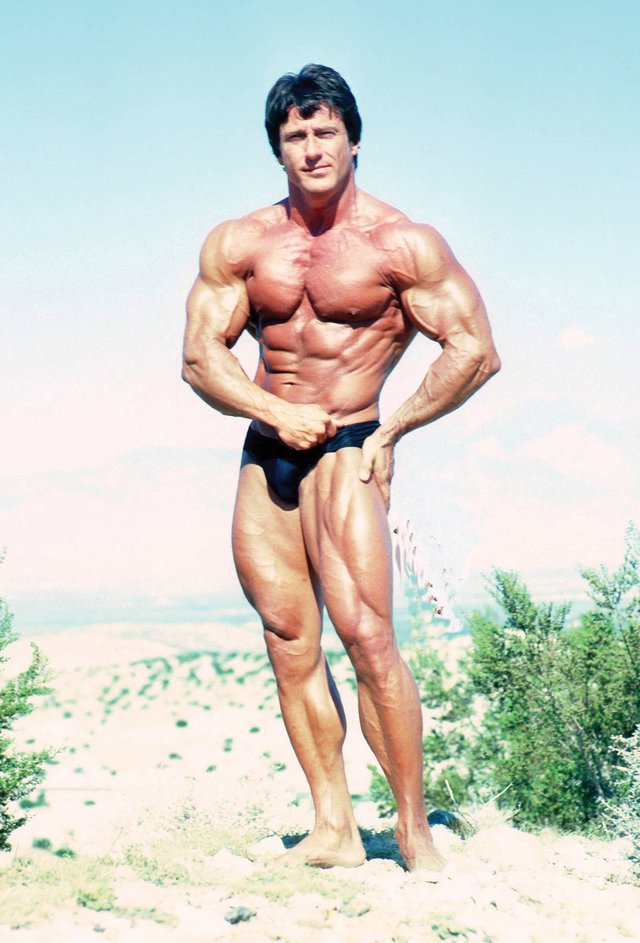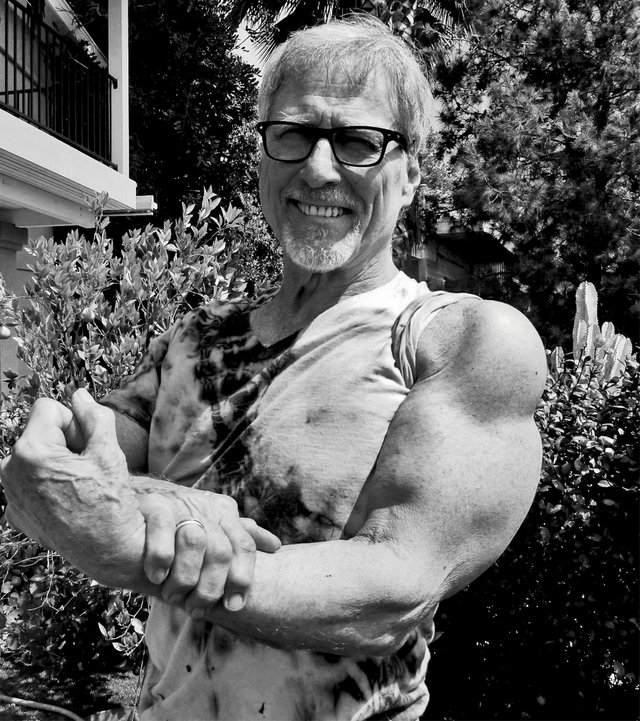The Golden Age Of Gains
At 75 years old, Frank Zane still looks impressive, and he’s full of fresh advice gained from a lifetime spent in pursuit of perfection. Read his latest thoughts on what you need to keep your body fit for the long haul.
There are legends in every sport, and Frank Zane represents the upper echelon of lifters. He’s an anomaly whom many agree had the best-looking body ever. Unlike today’s 250-300-pound bodybuilding champions, Zane never tipped the scales at more than 200 pounds in his competitive prime. Yet he earned three Mr. Olympia titles and is one of the few men to snatch a victory from Arnold.
A large part of Zane’s appeal is tied to his physique. He sported the proportions of a Greek statue and literally wrote the book on symmetry. Unlike the modern stock of top pro bodybuilders like Heath, Coleman, or Cutler, whose physiques are just too outlandishly big to relate to, Zane represents the every-man who shifted the bodybuilding paradigm away from sheer mass, gently steering it toward pure aesthetics.
With the recent emergence of the competitive physique category, where athletes are lighter, it’s now clear that Zane has always been a man ahead of his time. He’s also one of the nicest and most genuine human beings you’ll have the pleasure of meeting.
Taking a break from his personal coaching business, he kicked back with Train Magazine to impart some of the valuable knowledge he earned over the course of a lifetime of lifting. Here are Zane’s opinions in his own words. Use his advice to earn yourself a timeless physique.
World Beating Foresight
Back in the 1970s, I was already taking large amounts of amino acids, like tryptophan and arginine, that are only now becoming popular. The whole low-carb diet craze was also something I used to do that’s finding a lot of popularity. If I had one wish, it would be that I had taken more time to build up in weight rather than training excessively heavy when I was building toward a competition. This strategy always left me with too many injuries that I still suffer from today. There are two kinds of lifters: Those who want to get big fast and those who want to do it slowly so they last longer. The latter is a far smarter choice.
The King Of Symmetry Sets The Record Straight
What most people talk about is not symmetry; it’s bodybuilder symmetry. There is no such thing as pure symmetry between upper body and lower body. That’s not symmetry, that’s proportion. The bigger guys present themselves in a symmetrical way because they pose straight-on. If you cut down the middle of their body, you can compare left to right.
I never did that, and I avoided poses where left and right were doing the same thing, yet people would always say I was very symmetrical. In fact, my left and right side were never even, and they definitely don’t match symmetrically. Everyone said I had it, so I only presented my strong points and didn’t do a lot of side poses. I learned that from Bill Pearl.

Perfection Is Unattainable
You’ll always run into problems if you try to assign a number to any part of your body. Even in contests, they don’t assign numbers to things. Instead, I took photos and studied them. All that other crap where the size of your neck, arms, and calves should be the same is just ridiculous. If you want, you can write some numbers down, but at the end of the day it’s what people see that counts. Be sure to present the perfect illusion.
The Advancement Of Nutrition
There’s value to the advances in amino acids and antioxidants. I’ve studied this through the years and have always been aware of what’s going on in the field. However, there are no major changes that have revolutionized nutrition.
There’s No Magic Fix
People always ask me to make them a program, as if there’s a magic routine I’ve been keeping secret. Truth is, everything works if you take the time to let it. I like showing people how to do things correctly, because using perfect form and developing the ability to isolate areas is crucial. Blood flow needs to get to the muscles for there to be growth.
I’m 75 years old this summer and may not be training heavy, as I’m working around injuries, but I still find a way to increase time under tension. A big part of doing that successfully is attaching a rubber cable to the weight stacks so the weight increases as you get closer to the end of the move.

Stretching Truths
When training a particular body part, you should do roughly ten different stretches for it during the rest periods between your sets. Each stretch should last 15-20 seconds. After a set, you want to rest and drop your heart rate. This is the ideal recovery tool as you relax into the stretch; it saves a lot of time and keeps you warm. While they stretch, I encourage people to say positive affirmations in their head: “I am flexible and can stretch my limits.” All of these stretches and Mantras are included in Frank’s newest step-by-step and day-by-day program 91 Day Wonder Body.
Staying The Course
The main reason people fail to stay motivated to exercise is that they don’t get reinforcement for their progress. Here’s the cycle as I see it: They stuff themselves at Thanksgiving, which continues through December and into the middle of January. This is when they get motivated to get in shape. They’ll often last in the crowded gyms until February or March. This is the point when the weather starts to warm up so they get out of the gym and do other stuff outside, mixing in a little bit of training while never getting true feedback on their progress.
The only way most people can get motivated is through deficiency, and that’s not how you stay motivated. You will always be unhappy. You will go backwards. You’ll be worse, not better. The answer to this problem is to become motivated through success.
The Most Effective Training Split
The split I’ve had the most success with is a three-way split where day one is upper body pulling exercises, day two is legs, and day three is pushing exercises. You should do this in train, rest, train, train, rest format. You should never train upper body two days in a row or you’ll wear out your shoulders. Too much upper body work is going to get to you. You might get away with it when you’re young, but it will eventually get to you.
My Routine
Nowadays, I train twice a week. I do upper body one day and legs the other day. I also walk a lot and shoot archery, while training little bits with clients. It’s not only about me anymore.

